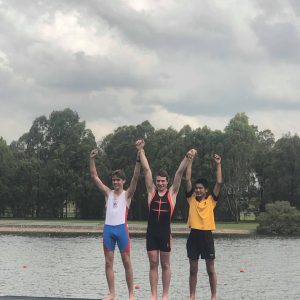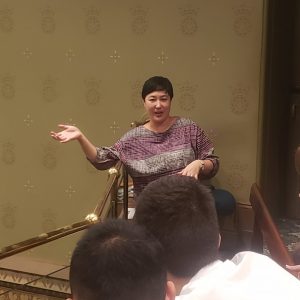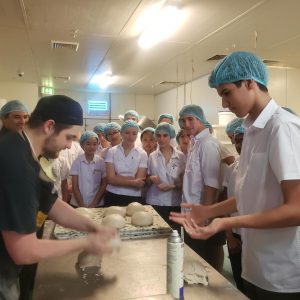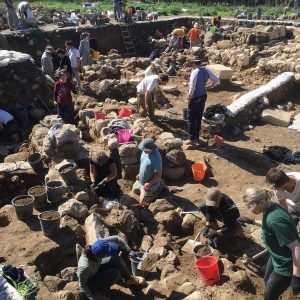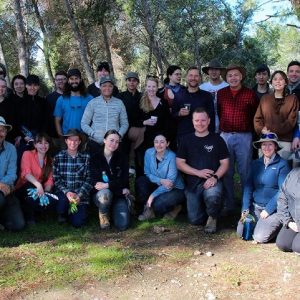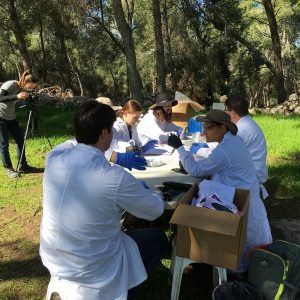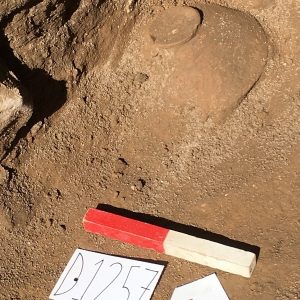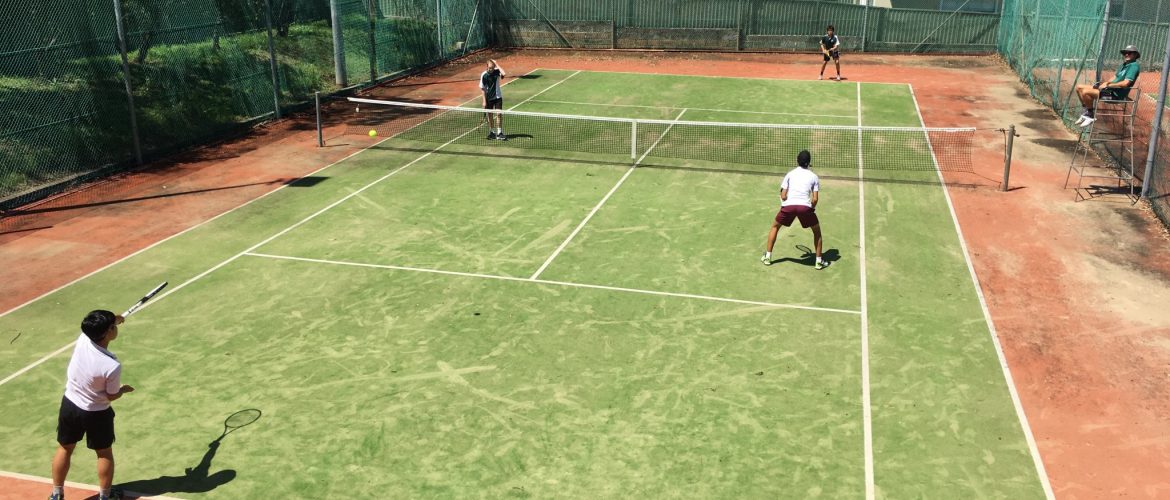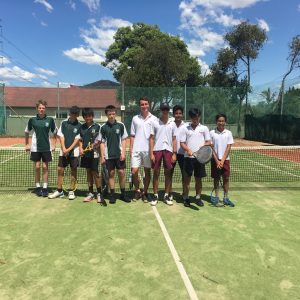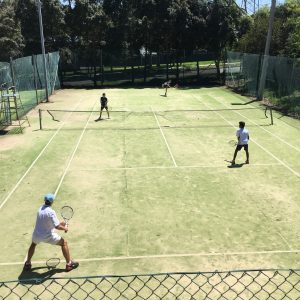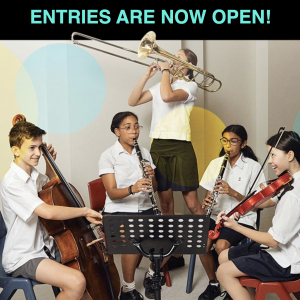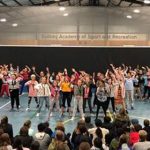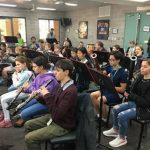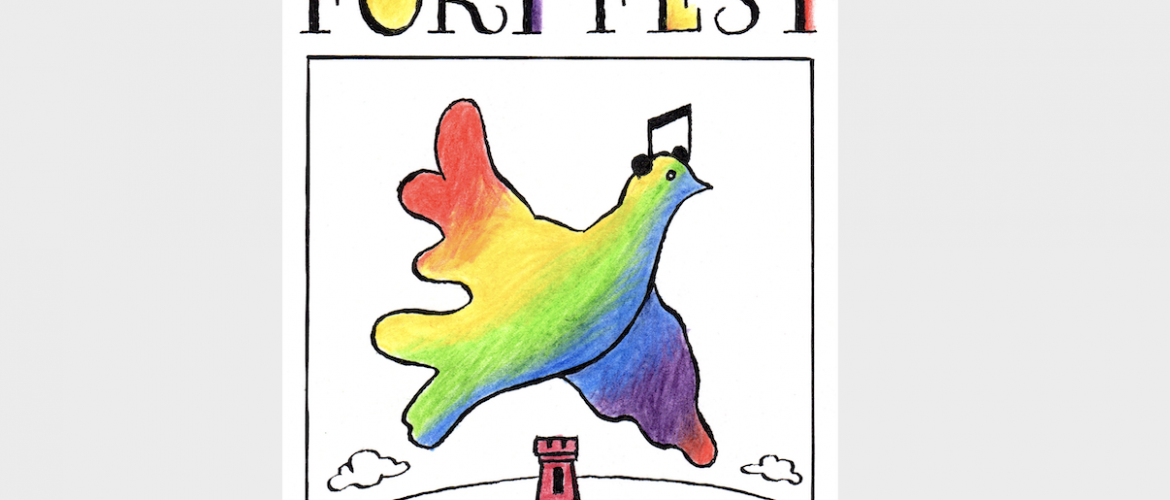Michael Kirby’s Speech
FORT STREET HIGH SCHOOL
ANNUAL SPEECH DAY 2020
SYDNEY TOWN HALL
21 FEBRUARY 2020
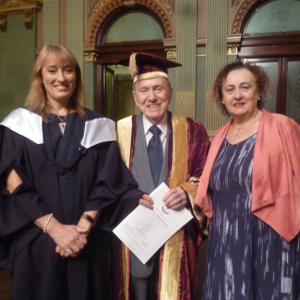
(photo of principal Juliette McMurray, The Hon.Michael Kirby AC CMG and past principal Ros Moxham)
SENTINELS OF SECULARISM
The Hon. Michael Kirby AC CMG*
Fort Street High School, 1955
RESPECTS AND PRAISE
It is always a privilege for an alumnus of a famous school to return to events that remind the erstwhile pupil of the wonderful early days of family, teachers, learning, and fellow students.
I offer respects for the Indigenous people of Australia. They were not represented in any way in my school days. I know that, in recent times, there have been Aboriginal Fortians. We must ensure that the neglect and wrongs of the past are reversed. The road to Aboriginal equality requires the provision of the best educational opportunities. Including in school days. Including at Fort Street High School.
I congratulate the students whose prizes and awards are acknowledged on this occasion. I also congratulate others who did not win prizes but tried their best. That is all that can be expected of any of us.
I honour the teachers of this School, past and present. In my day they were outstanding; as they are today. Next to family members, teachers are generally owed the greatest debt for one’s preparation for life.
I also thank the parents and other family members who are present today. This day was my father’s birthday. He was born in 1916. He died at age 95 in 2011. He came with me, and later with my brother David Kirby, during our school days to events at the school. David was himself to become a Judge of the Supreme Court of New South Wales. He regularly presided in murder trials. That is a very difficult and responsible task. In comparison, my office as a Justice of the High Court of Australia, was easier because it involved re-examining cases that had already been handled by very clever people. Let us express our thanks to our parents and families, and also our teachers, for the love and support they have given us.
I particularly congratulate those who bring music into the lives of the students at this School. In my school days I sometimes came to this Town Hall for “youth concerts”, with professional orchestras and soloists. I doubt that any of them had more accomplished musical performances than we have witnessed today. I particularly cherished the singing by the Chamber Choir of the religious anthem Come Sweet Death by J.S. Bach. The modern arrangement by Rhonda Sandberg was a reflection of the special features of this School. Within the discipline of Bach’s composition, the new arrangement allowed free falling voice parts that permitted each singer to express their personal musical sense. This is a special feature of our School. Discipline; but within creative freedom. Studies of the common links of Nobel prize winners show that the greatest creativity comes not from a logical continuity. It comes to those who think (and sometimes sing) outside the square.[1]
CHANGE AND CONTINUITY
There are many changes evident at this Ceremony:
* The shift from the separated Boys’ and Girls’ schools into the amalgamated school of today is the most obvious change. With that change came an expansion in the size of the School, together with new buildings and facilities as a consequence;
* In my time, Speech Day was held in the School Memorial Hall. With the expanded numbers this was no longer possible; so that we now celebrate in this Town Hall. It is old. But Fort Street School is older still;
* The ethnic composition of the School has radically changed. In my day, in a school of 500 boys, there were only 9 pupils who were Asian Australians. Now more than half the School are not Caucasian. In those days, “White Australia” made multiculturalism impossible. However, one of the 9 boys was John Yu. He later became a Professor of Paediatrics; Chancellor of the University of New South Wales; and Australian of the Year; and
* Scripture, as the dedicated weekly period was called, attracted almost all of the students at the School, although it was not compulsory. In those times nearly half the school, on Thursday mornings, attended the Anglican class in the Memorial Hall. Church of England was the biggest religion in Australia. It comprised more that 40% of the population. Now things are different.
Despite all these changes, two particular features of Fort Street remain steadily the same:
* The School was then, and still is ‘selective’. It boasted, as it still does, top results in academic outcomes. In my day as now, the results in the final exams were generally amongst the top 10 or so schools in the State of New South Wales. It is still so;
* The School is, and always was, a public school. It was part of the great experiment of school education that was initiated in Australia in the mid-19th Century. Its requirements were described in the Public Instruction Act 1880 (NSW), precursor to today’s legislation.[2] It was to provide education for all children from all classes of the population. That education was to be free; compulsory to a specified age; and secular. The commitment to “secular instruction” could allow “general religious teaching” related to the history of England and Australia. But as a public school it was forbidden from teaching what Parliament called “dogmatical or polemical theology”. Even the single hour set aside for religious instruction was excluded “if the parents or guardians of such pupils object to such religious instruction being given”. [3] These were very deep concerns and indelible features of public education in Australia from the start. They still leave their imprint on our public schools and on our nation.
GOVERNOR BOURKE AND NATIONAL SCHOOLS
My biggest academic achievement at Fort Street was coming top of the State in Modern History in the Leaving exams of 1955. At the time, I was very proud of this, and the School was well pleased. However, just 4 years ago a pupil of Fort Street, Janek Drevikovsky, was placed first in the State in five subjects, putting my accomplishment in the shade.
Still, I always loved history. My remaining words will be about that topic.
Reflecting on the origins of public education in Australia, I resorted to the history of Fort Street High School written by my teacher of German, himself a Fortian, Ronald Horan.[4] Although the school was established in 1849 by Governor FitzRoy, its creation was really the brainchild of Governor Bourke.[5] Sir Richard Bourke derived for Ireland, where he had seen the bitter sectarian and denominational conflicts in education between Catholics and Protestants. He was liberal in most things, including the emancipation of the former convicts, the establishment of jury trial and the limitation on excessive punishments. However, most of all he took on the opposition of the churches to the notion of establishing public education for all children in the colony.
Shortly before he set out for Sydney, in 1831, a National Board of Education had been established in Ireland to provide for non-denominational schools supported by public funding. This ideas was greeted with great enthusiasm in Ireland. However, it later attracted opposition from the churches. They saw it as an interference with their prerogatives. The idea of religious schools eventually faded away in Ireland until revived in very recent times. In Australia too, the churches (which had enjoyed a monopoly in education until the 1830s) tried to kill off Bourke’s scheme.
Ultimately Governor Bourke’s dream was to be partly fulfilled by the spread of public education throughout Australia that now serves two thrids of Australian school children.
Near the State Library in Sydney, on the edge of the Royal Botanical Gardens, is a statue of Richard Bourke. It was the first public statue erected in Australia. It was paid for in 1842 by subscriptions from the residents of the colony. Governor Bourke died in 1855. He is buried near his home in Co Limerick in Ireland. His grave is in disrepair. Those who have benefited from his dream of public education should subscribe to a new memorial in his honour at his grave. The current times show that it would be timely and well merited.
SECULARISM AND RELIGION
The longest established school in Australia still functioning is The King’s School at Parramatta. Governor Bourke considered this Church of England school an offence to his national school ideal. He planned ‘national’, ‘model’ or ‘public’ schools. The earliest of these that has had a continuous record of teaching and education is Fort Street School. It took over the building that had served as the Military Hospital in Sydney, established in 1815. We can be proud not only of our school but of the role and example it has afforded for public education throughout Australia.
When the federation of the Australian colonies was discussed in the last decade of the 19th Century, the role of religion in the proposed Constitution was hotly debated. Ultimately, over much opposition, reference to God was slipped into the Preamble to the Imperial Act to which the Australian Constitution was annexed. [6] It declared that the People of the uniting colonies were “humbly relying on the blessing of Almighty God” in establishing the Constitution.
This mention of God led to furious disagreement. Ultimately, section 116 of the Constitution was included, forbidding the Federal Parliament from making “any law for establishing any religion, or for imposing any religious observance, or for prohibiting the free exercise of any religion” or imposing any “religious test”. This provision was largely copied from the First Amendment to the Constitution of the United States of America. However, unfortunately (unlike in that country), it has been given a needlessly and mistakenly a narrow interpretation by the High Court of Australia.[7]
The consequence is that, although our Constitution reflects the common wish that Australia should be a secular country, in large part, the textual provision has proved incapable of enforcing effective secularism. This is particularly so in the public funding of religious schools. [8] In consequence of this, Australia has one of the highest levels of governmental funding of religious schools amongst the advanced democracies that are members of the Organisation for Economic Cooperation and Development (OECD). As a result, the dream of Governor Bourke survived; but his concern about denominational schools experienced an afterlife that has emboldened religious supporters to make ever increasing demands on the legislatures and the Australian community.
The success of these demands is the more surprising because of the strong support for secularism that continues in Australia, doubtless reinforced by the general dedication of State public schools to secular education. The demands are also surprising because of the evidence, in successive national Census returns, indicating the decline of religious affiliation over the years since Federation.
Whereas in earlier years, the overwhelming majority of Australians identified as Christian (and specifically as Church of England) in more recent times things have changed. In the Census of 2011, the largest religious group was Roman Catholics. In the 2016 Census, the largest group were those who identified as “no religion”, 30%. That represented an increase of almost 10% in the space of 5 years. Now only 52% of Australians identify in the Census as aligned with “Christianity”. Faster growing religions include Hinduism (1.2%); Buddhism (2.4%) and Islam (2.6%).
All of this indicates what our experience confirms. This is that Australia is much less religious than the United States. It is rapidly embracing a “post religious” ethical alignment. This is especially so amongst young citizens. It presents itself as a country which, in the matter of religion, is tolerant, relaxed and believes in ‘live and let live’. Thus, in my own home, my partner Johan is an adherent to “no religion”. I remain connected with the old religion of my school days, Anglican. We have robust conversations about this subject. But our differences oblige us to respect each other’s views. And not to try to force our opposite opinions upon one another.
RELIGIOUS DISCRIMINATION BILL 2020
Onto this scene has now come a new proposed federal law that has not so far enjoyed the public attention that it deserves. Especially amongst those who have had the advantages of secular education in public schools. It would be a mistake to believe that this is an outcome necessarily destined to last forever.
One consequence of the introduction of same-sex marriage in Australia was a commitment in the Coalition Parties which form the present Federal Government, that, if same-sex marriage were adopted, contrary to the wishes of most religious organisations and their adherents, new and stronger legal entitlements would be enacted for people of ‘religious belief’. This audience will include people of different political opinions and religious beliefs, as well as people of no religious belief. Everyone’s right to have their own opinions in such matters must be respected. However, there are provisions in the new Religious Discrimination Bill that need to be considered very carefully, in case the Bill is enacted by Federal Parliament:
* A pharmacist will be entitled to deny birth control treatment to an unmarried customer because of his “religious belief”;
* A religious school will be entitled to deny employment to a gardener or tuckshop manager who cannot produce proof of alignment with the school’s religion;
* A doctor will be entitled to refuse stem cell therapy for a disabled person on the ground of his or her disability because of his beliefs and to send them away without advice on where to go to get help;
* Teachers, even in public schools, will be entitled to ridicule gay students and people belonging to another faith, on the grounds of the teacher’s religious belief; and
* A non-Christian will be entitled to ridicule Christian believers without remedy because of that person’s religious belief.[9]
One of the basic flaws in this proposed law is that it does not counter-balance the rights of people to secure legal protection for their religious beliefs and speech against the competing rights of others to enjoy their own basic human rights. In Australia we do not have a general charter or rights in our Constitution or in federal law. This Bill is intended to override State anti-discrimination laws. Many commentators consider that this is an undesirable direction for our law to take. The human rights of particular people have to be reconciled with the human rights of other people. The right to “swing my arm, finishes when I hit another person’s chin”. [10]
SENTINELS OF SECULARISM
This is why those who have had the great advantage of secular education in public schools (including people who may be themselves religious) have an interest to know where this new legislation is pointing. It is not a good direction. Those who are of that view should raise their voices. The new law could encourage the intrusion of an individual teacher’s religious beliefs into the secular space of public schools to diminish the dignity, self-respect, beliefs and position in life of others. All in the name of the “religious belief” of others. We have only to look around in our world to see that sometimes religious beliefs can be decisive. So far, we have got by in Australia without adding legal enforcement to religious beliefs. Our multicultural and multifaith community is a model for the world. We should not unravel it by encouraging legal enforcement of religious beliefs, whatever form they may take.
This is why the beneficiaries of public education in Australia, and others who share this view, should oppose the current moves. They are unnecessary and potentially damaging. Secularism is one of the greatest gifts in Australian constitutionalism that we receive from our British heritage. All citizens should be vigilant to defend secularism. But above all, those whose education is, or has been, in public schools: “free, compulsory and secular”. The beneficiaries of public education should be vigilant sentinels of secularism. We must not lose the dream of Richard Bourke.
* Justice of the High Court of Australia (1996-2009).
[1] A Prize for Originality is offered by the school in the name of Fortians, Michael Kirby and John Singleton AM. It was won jointly in 2020 by Bonnie Huang and Lucy Bailey.
[2] Public Instruction Act 1880 (NSW) (Act 43, Vic. No. 23), s.7.
[3] Ibid, s.18
[4] R.S. Horan, Fort Street – The School, Honeysett Pub. 1989, 7.
[5] General Sir Richard Bourke KCB (1777-1855). He was Governor of NSW 1831-1837.
[6] Constitution of the Commonwealth of Australia Act 1900 (Imp.); 63 and 64 Vic. c12 First Preamble.
[7] Luke Beck, Religious Freedom and the Australian Constitution – Origins and Future, Routledge (Taylor and Francis, London, 2018, 165.
[8] Attorney-General (Vic) ex rel Black v The Commonwealth (DOGS Case) (1981) 146 CLR 559 at 634; cf at 588; cf Williams v The Commonwealth (2012) 248 CLR 156 [109]-[110].
[9] See Generally submission by Australian Discrimination Law Experts Group on Religious Discrimination Bill 2019 – 2nd exposure draft, 30 January 2020.
[10] Z. Cowen, The Right to Swing My Arm, Tagore Law Lectures 1959, Uni of Calcutta.







